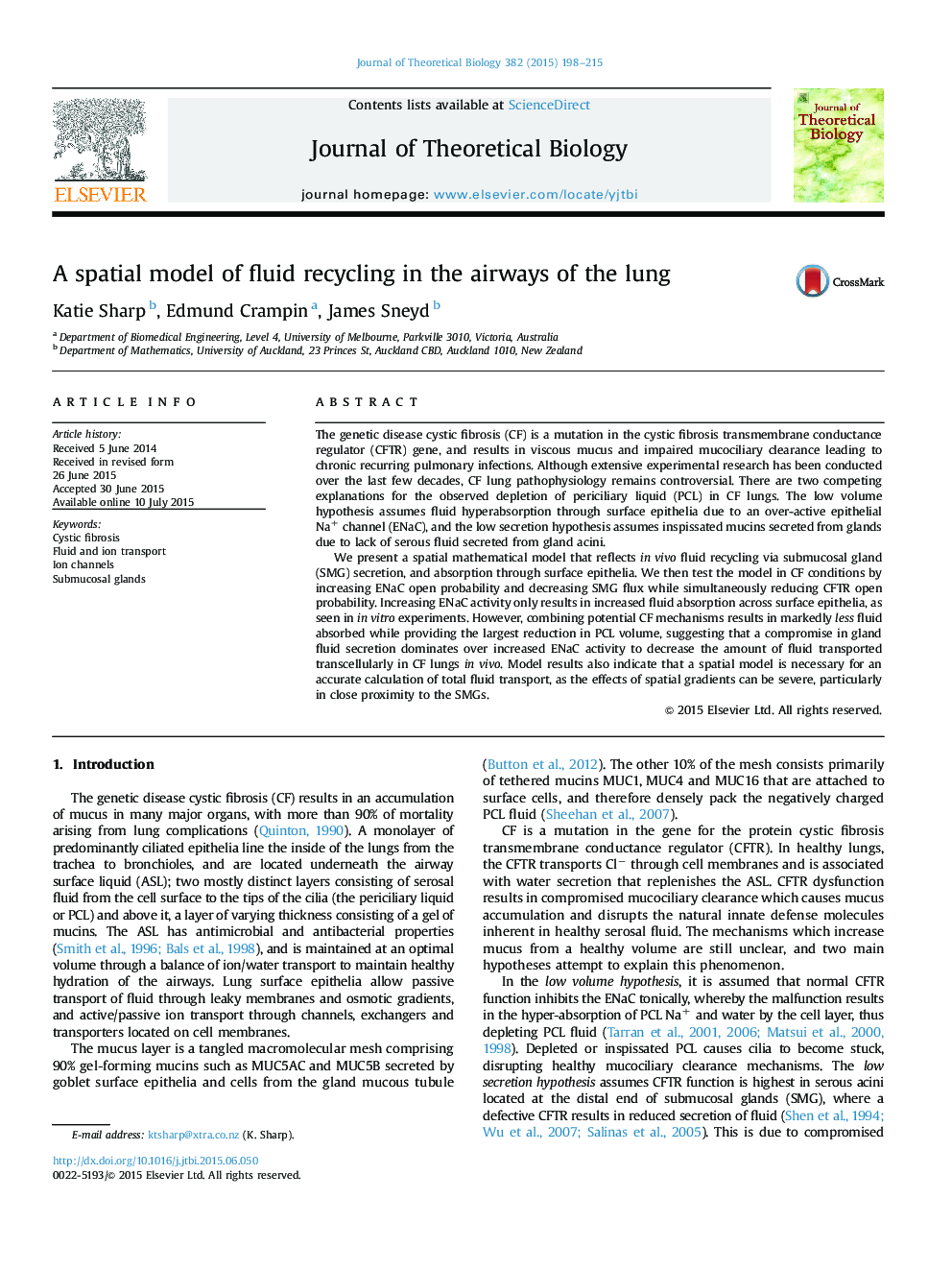| Article ID | Journal | Published Year | Pages | File Type |
|---|---|---|---|---|
| 6369535 | Journal of Theoretical Biology | 2015 | 18 Pages |
Abstract
We present a spatial mathematical model that reflects in vivo fluid recycling via submucosal gland (SMG) secretion, and absorption through surface epithelia. We then test the model in CF conditions by increasing ENaC open probability and decreasing SMG flux while simultaneously reducing CFTR open probability. Increasing ENaC activity only results in increased fluid absorption across surface epithelia, as seen in in vitro experiments. However, combining potential CF mechanisms results in markedly less fluid absorbed while providing the largest reduction in PCL volume, suggesting that a compromise in gland fluid secretion dominates over increased ENaC activity to decrease the amount of fluid transported transcellularly in CF lungs in vivo. Model results also indicate that a spatial model is necessary for an accurate calculation of total fluid transport, as the effects of spatial gradients can be severe, particularly in close proximity to the SMGs.
Related Topics
Life Sciences
Agricultural and Biological Sciences
Agricultural and Biological Sciences (General)
Authors
Katie Sharp, Edmund Crampin, James Sneyd,
